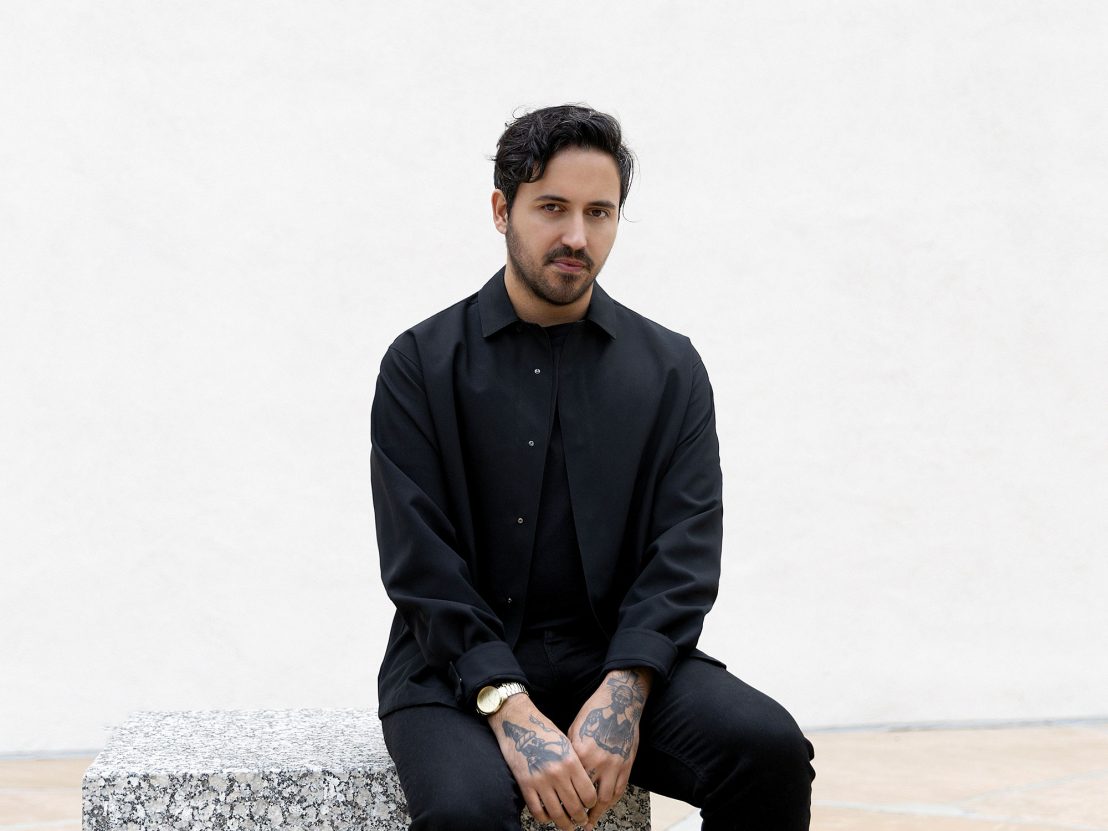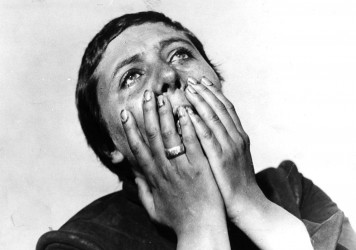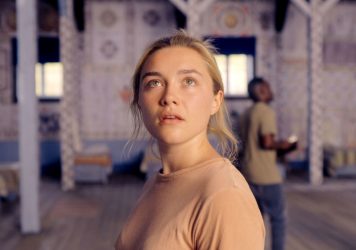
With a stage name steeped in occult folklore – ‘Häxan’ being the Swedish word for ‘the witch’ – it is perhaps no coincidence that British composer Bobby Krlic’s work is well suited to the horror genre.
As The Haxan Cloak, Krlic has spent the best part of a decade carving out a niche as a purveyor of compelling, quietly unsettling experimental soundscapes. It’s a reputation that has led him to collaborating with of a diverse array of musicians, including Björk, HEALTH and Goldfrapp.
In filmmaker Ari Aster, however, Krlic appears to have found something of a dream partnership. The pair first met in 2017, before the release of Aster’s acclaimed debut feature, Hereditary – but by this time Aster had already written the entire screenplay for Midsommar, while listening to Krlic’s 2014 album, ‘Excavation’. When it came to making the film, he wasn’t going to have anyone else score it.
Following collaborations with Atticus and Leopold Ross on Blackhat, Triple 9 and Almost Holy, Midsommar marks Krlic’s first feature as a solo composer. It is the perfect accompaniment to Aster’s strange, unnerving film, deftly treading the line between unconventional genre chills and unexpected beauty. Here Krlic tells the story of how the score came together.
“We just hit it off straight away. We talked a lot about our love of film and what scores we liked and it was so clear that we shared so many of the same sensibilities… On top of that, to have somebody who has actually written their film while listening to your music means that half the battle has already been won.
“He gave me the script and even on page three, there was a little note that said, ‘At this point, play this track by The Haxan Cloak from this record, and read with it playing until the scene is over.’ I could tell just how much of a music fan he was and how deeply he had considered the placement of everything in his film and that just made me really want to do it.”
“We spent a week in my studio, working eight hours a day, and it was great. I sat down at the piano and we’d watch scenes and I’d play. Ari is not a musician, but he’s able to articulate himself miraculously well in terms of how something should be. I would play something and he’d be like, ‘That motif is great, but let’s look at where the camera moves in the next sequence and how can we help that with music…’ What better way to help you tap in to the emotional qualities of a film than sitting with the man who wrote it, telling you exactly how he imagined it to be.”
“There’s a lot of electronic textures that I made with tape loops and I wanted it to have echoes of musique concrète. Then there’s a 16-piece orchestra with double bass, cello, viola and violins and we recorded all of that at AIR Studios. They would take all of these experiments that I’d been doing with tape. I was taking strings that I’d made at home and putting them to tape and kind of bending all of the pitches of them to the picture and they would take it and replay it and they’d also replay a lot of the electronics that I’d done with strings. It was a really amazing process.”
“There’s a lot of diegetic music that was written in to the script. The Swedish members of the Hårgas have these songs and kind of wordless atonal singing that takes place around the village. I did a lot of research in to traditional Nordic, Scandinavian and Icelandic music and through instrument libraries, I was able to write for these very specific old instruments. A lot of it was kind of rooted in ancient Swedish folk music – religious music – and I took that as a starting point.
“I worked with a really incredible vocalist called Jessika Kenney. She did her degree in the interpretation of sacred texts in to song. She was really instrumental in developing this vocal language for the characters to sing, which was a complete fabrication. It was made out of different parts from ancient languages that she put together.”
“This is something that Atticus [Ross] drew my attention to on the first couple of things that we did together. People often write a bunch of music and that music gets handed off in stems to a music editor who then goes through and re-arranges it. He wanted to be the person that writes the music and puts it to picture, because that’s the way that you really successfully convey the emotion of the music that you’re writing and know that it’s working. When you’ve got a piece of music, knowing how to take that and edit it and move it to picture, I think it’s a really important skill that you can’t overlook as a composer.”
“I didn’t want it to be just 20 cues from the film as they appear in the film in sequence. What I wanted to do was be able to tell the story and offer some insights in to the film that you might not get from just watching the film alone. I had all these high string sounds and gongs and cymbals that I’d recorded and put them all to tape and slowed them down and it’s this sort of strange, unsettling kind of ambience.
“That was something that I created to be the kind of hive mind of the cult in the film. You feel it permeating subliminally all the way through – there are pieces that extend longer than they do in the film, there are extra melodic passages and the whole thing is mixed differently. I wanted the soundtrack to take you on as much of an enveloping journey as the film does.”
Midsommar is released 5 July. The Original Score for Midsommar is released digitally on 5 July via Milan Records, with a vinyl edition set to follow later this summer.
Published 5 Jul 2019

By Lara C Cory
Portishead’s Adrian Utley and Goldfrapp’s Will Gregory discuss writing new music for The Passion of Joan of Arc.

Florence Pugh runs afoul of a Swedish cult in director Ari Aster’s toothless follow-up to Hereditary.

By Paul Weedon
The experimental German composer discusses his favourite OST.